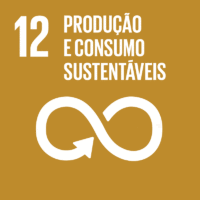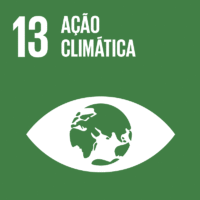Ciência_Iscte
Comunicações
Descrição Detalhada da Comunicação
Food, territory and policies: linkages for transition towards sustainability
Título Evento
International Sustainable Development Research Society
Ano (publicação definitiva)
2019
Língua
Inglês
País
China
Mais Informação
Web of Science®
Esta publicação não está indexada na Web of Science®
Scopus
Esta publicação não está indexada na Scopus
Google Scholar
Esta publicação não está indexada no Overton
Abstract/Resumo
The research has been developed within a research project on Spatial Planning for Change (SPLACH) through an interdisciplinary approach, resorting mostly to the transitions literature and economic geography. The analysis focus on food systems transition in a specific territory, the Lisbon Metropolitan Area.
The transition of food systems towards a sustainable model has been under analysis and debate (Sutherland, Wilson and Zagata 2014). This transition is related with structural changes, namely the emphasis on local production, short supply chains, and the preference for bio products. So far the research has mostly highlighted the role of niche innovations (e.g. Wuskerke and van der Ploeg, 2004; Knickel et al., 2009) and organic farms (Belz, 2004; Smith, 2007), transitions within individual farms (Wilson, 2008), and national cases (Poppe et al., 2009). In the case of food systems, the centrality of territorial units and scales is fundamental (Spaargaren et al, 2012). Therefore, the territorial dimensions will be emphasized in the transitions literature. Additionally, the research highlights also the multidimensionality of the innovation process with the inclusion of organizational and legal dimensions. According to Karanikolos, Vlahos and Sutherland (2015:251): “[…] Although technology is clearly important to agricultural systems, recent research suggests that transition within agriculture also involves new organizational forms and practices. Can these new organizational forms constitute niches in their own rights?”.
Bearing this in mind, the paper addresses the role of Metropolitan Areas in the food systems transition focusing on the case of Lisbon Metropolitan Area (LMA). Recent research projects (e.g., Periurban) have studied the LMA, allowing the identification of crucial resources for the transition process, such as a strong presence of agricultural land (around 45% of LMA land area).
The strategic role of this specific territory is addressed through the following analytical dimensions: i) characterization of Lisbon Metropolitan Area in socioeconomic and governance terms, namely land use patterns; ii) identification of the relevant policies involved, namely territory planning and management tools; iii) presentation of innovative case studies located in LMA within the theoretical framework of transition studies.
Case studies were conducted on food related innovative initiatives in the LMA value chain (e.g. Mercado Abastecedor de Lisboa, Quinta do Arneiro, Projecto Muita Fruta, Mercado Bio do Lumiar, Restaurante Quorum, Cantina de Escola Básica dos Olivais). Primary data were collected through interviews to key actors, namely entrepreneurs or leaders of the initiatives. Data were analysed and systematized according to the analytical dimensions presented in literature.
In terms of findings an results, the study allows the identification of the main elements explaining the emergence and development of innovative initiatives in Lisbon Metropolitan Area food system envisaging the transition to a more sustainable future in this territory. Among these aspects, there are policies, namely the Common Agricultural Policy, and Territory Planning and Management Policies.
Agradecimentos/Acknowledgements
Project SPLACH – Spatial planning for change
Palavras-chave
Food Systems,Sustainability Transitions,Territory,Lisbon Metropolitan Area.
Classificação Fields of Science and Technology
- Economia e Gestão - Ciências Sociais
- Geografia Económica e Social - Ciências Sociais
Registos de financiamentos
| Referência de financiamento | Entidade Financiadora |
|---|---|
| POCI-01-0145-FEDER-016431 | European Regional Development Fund (FEDER), through COMPETE2020 - Competitiveness and Internationalization Operational Program (POCI) and by National funds through the Foundation for Science and Technology FCT |
Contribuições para os Objetivos do Desenvolvimento Sustentável das Nações Unidas
Com o objetivo de aumentar a investigação direcionada para o cumprimento dos Objetivos do Desenvolvimento Sustentável para 2030 das Nações Unidas, é disponibilizada no Ciência_Iscte a possibilidade de associação, quando aplicável, dos artigos científicos aos Objetivos do Desenvolvimento Sustentável. Estes são os Objetivos do Desenvolvimento Sustentável identificados pelo(s) autor(es) para esta publicação. Para uma informação detalhada dos Objetivos do Desenvolvimento Sustentável, clique aqui.

 English
English




